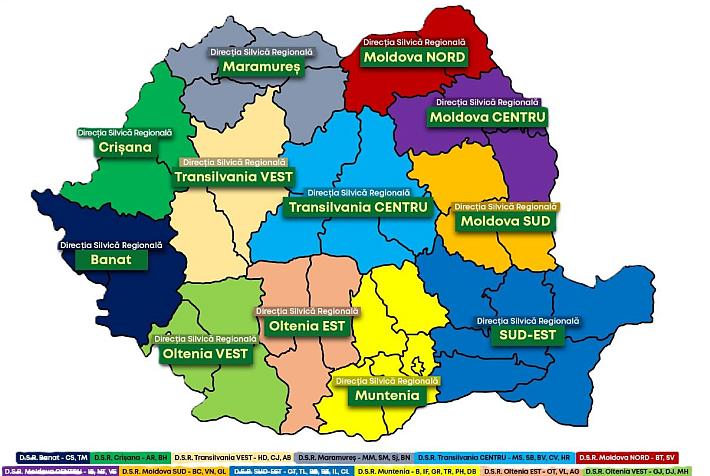(P) Tax Flash: Accounting regulations amendments

Order of the Minister of Public Finance no. 1898/2013 amending and completing the Accounting Regulations conformant with the European Directives, approved by Order of the Minister of Public Finance no. 3055/2009 – published in the Official Gazette no. 727/26 November 2013
The order was issued on 22 November 2013 and will become enforceable as of 1 January 2014.
The main amendments to Accounting Regulations conformant with the European Directives include the following:
Accounting treatment of assigned receivables
Assigned receivables will be recorded at the acquisition cost, the par value being recorded in an off balance sheet account, newly introduced by the order.
If the recovered amount exceeds the acquisition cost, the difference will be recorded as income, on the settlement date.
Should the assignee also transfers the receivables, on the transfer date it will recognize an expense or income, depending on the difference between the acquisition cost of assigned receivables and the sale price.
Assigned receivables existing in the balance of account 461 “Sundry debtors” when this Order enters into force will be brought down to the acquisition cost by recording as expenses the difference between the par value and the acquisition costs and by reversing the impairment adjustments incurred in relation to them. If the acquisition cost cannot be determined, the receivables will be evidenced distinctly and they will be further kept at the par value, until they are written out.
This Order also provides for the information on assigned receivables that should be presented in the explanatory notes to financial statements.
Accounting reports and financial statements of permanent establishments
If a legal person headquartered abroad performs its Romanian operations through several permanent establishments, the financial statements and accounting reports set out in the Accountancy Law will be prepared by the permanent establishment designated to perform the relevant tax requirements, so as to reflect the operations of all permanent establishments.
Capitalization of non-current assets
The accounting regulations conformant with European Directives were completed by several provisions on the capitalization of non-current assets, inter alia :
- Spare parts and service equipment are, in principle, accounted for as inventory and expensed when used. However, important spare parts and security equipment that will be used for more than one year will be considered non-current assets
- Daily maintenance costs incurred for current repairs and maintenance will be recognized in the profit and loss account as they are being incurred. Expenses related to repair works, other than the ones specified above, which result in the improvement of technical parameters or which are indispensable, from time to time, in order to ensure the continuous operation of the assets under normal parameters, will be included in the value of that asset.
- Repair works to fully depreciated non-current assets which may still be used will increase the value of the assets, with certain exceptions
- Components of non-current assets, which are replaced regularly, will be recognized in the book value of relevant assets if the recognition criteria for non-current assets are met
- Expenses related to non-current assets used under a rental, commercial leasing, administration or other similar contracts will be capitalized or they will be recorded as expenses related to the period when they were incurred, depending on the relevant economic benefits. If capitalized, they will be depreciated throughout the said contract
Bookkeeping of subsidy funded projects
The Order states that the recognition of government subsidies takes place only when there is sufficient certainty that the entity will comply with the requirements for the granting thereof and that the subsidies will be received.
The bookkeeping of subsidy funded projects will be kept distinctly, per each project, according to contracts entered into.
The Order was also completed by regulations regarding the time of recognizing the subsidies, depending on their purpose.
Bookkeeping of taxes with payments in advance
Corporate income tax, as well as the other taxes for which relevant legislation sets out payments in advance, will be reflected distinctly in accounting records, in expense and payable accounts, separately recording the payment of their counter value.
Bookkeeping of gift points granted to customers
Gift points are recorded as an identifiable component of the transaction through which they are granted, in the account 472 “Deferred income“ / distinctly analytic and they are recognized as income when the entity meets its obligation to provide the prizes or at the end of the period when customers may use the gift points.
If it is estimated that the expenses necessary to comply with the obligation to provide the prizes exceeds the equivalent value received or to be received for them, on the date when the customer uses them, a provision will be recorded for the relevant difference.
Order of the National Bank of Romania no. 4/2013 amending and completing the Accounting Regulations conformant with the European Directives, approved by NBR Order no. 27/2011 – published in the Official Gazette no. 729/ 27 November 2013
The Order was issued on 22 November 2013 and will become enforceable as of 1 January 2014.
The order provides the change of the accounting treatment for assigned receivables.
The recognition and booking of assigned receivables are similar to the treatment provided by the Order of the Minister of Public Finance no. 1898/2013, outlined above, using the chart of accounts provided for by Accounting Regulations conformant with the European Directives, approved by NBR Order no. 27/2011.
Furthermore, the Order also provides for additional information on assigned receivables that should be presented in the explanatory notes to financial statements.
For additional information, please contact:
Venkatesh Srinivasan, Partner – Head of Tax and Legal
Ernst & Young SRL and E. Platis, C. Bazilescu LLLP
15-17 Dr. Ion Mihalache Street
Tower Building, 19th Floor
Sector 1, 011171, Bucharest, Romania
Tel: (40-21) 402 4000, Fax: (40-21) 310 7124
(p) - this article is an advertorial











